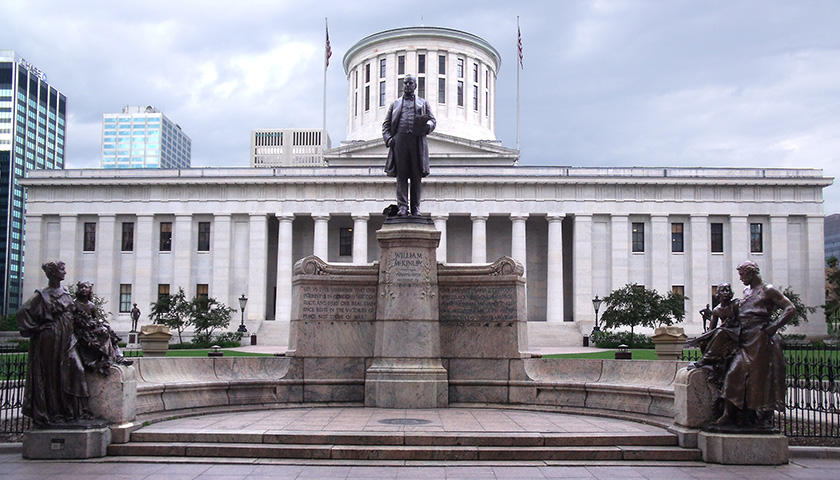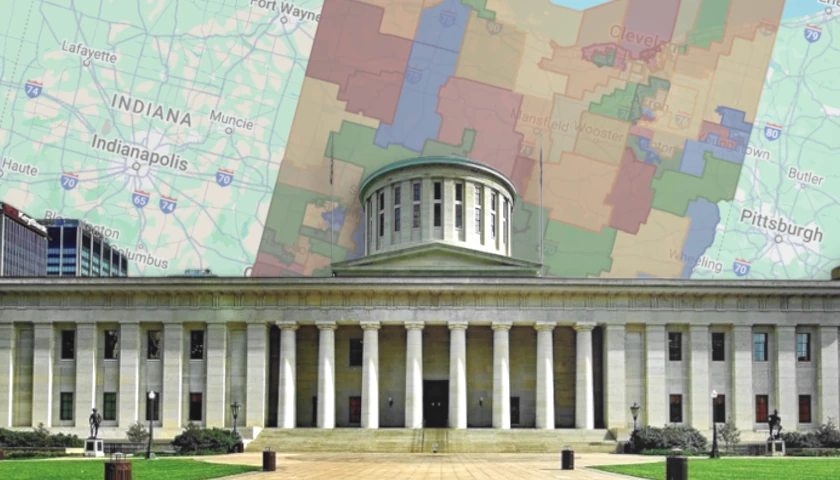Pennsylvania Gov. Tom Wolf (D) vetoed a proposed new congressional-district map passed by the Republican-run state legislature.
The governor’s decision Thursday effectively turns over the selection of a new map to the state judiciary. The Republican-run Pennsylvania Commonwealth Court has indicated it would intervene if Wolf and lawmakers failed to agree on how the new districts will be reshaped. But even if that court chooses the reapportionment plan passed by the General Assembly, Wolf’s party may ultimately get its way by appealing to the Democrat-controlled state Supreme Court.
Every decade, the legislature must reshape the state’s congressional districts to align with new demographic data reported by the U.S. Census and submit the plan to the governor for approval. All districts must be virtually equal in population. Because Pennsylvania’s population growth has lagged behind that of other states, the Keystone State’s congressional delegation will shrink after the 2022 elections from 18 to 17 members.
In a message to the General Assembly explaining his veto, Wolf denounced the proposed remapping as unduly advantageous to Republican congressional candidates.
“This legislation fails the test of fundamental fairness,” he wrote. “The result of a partisan political process, [the legislature-approved map] does not deliver on the Pennsylvania Constitution’s guarantee of free and equal elections. The people of Pennsylvania deserve a fair election map that promotes accountability and responsiveness to voters and is drawn in an open and honest way.”
Republicans castigated the governor for what they see as an attempt to get a more Democrat-friendly plan enacted. They also lamented his rejection of a map that, however containing some changes by legislators, was largely drawn by a private citizen from Lehigh County, Amanda Holt. It was the first citizen-designed map ever selected for implementation by Pennsylvania lawmakers.
“Wolf has picked political brinkmanship and unnecessarily requiring the courts to address congressional redistricting instead of joining the General Assembly in adopting the first ever citizen-drawn map which did not use partisan data in the development of the map,” State Rep. Seth Grove (R-York), House State Government Committee chair and redistricting-plan sponsor, said in a statement. “We went from a redistricting process that was open to every Pennsylvanian, took into account feedback from countless residents and a Legislature-approved map drawn by a citizen to the Wolf way of having a few select members of the judiciary decide which map will be used.”
Republicans have particularly resented the possibility that state judges may settle the matter of congressional redistricting, for they have done so before in a manner that burned the GOP. In 2018, in response to litigation by the League of Women Voters’ state chapter, state Supreme Court judges not only threw out a Republican-drawn congressional map that had been in effect for six years, they too, it upon themselves to redesign the map, exceeding any of their explicit constitutional powers.
The map GOP legislators passed would have made some districts more difficult for Democrats to win, particularly those now held by U.S. Reps. Matt Cartwright (D-PA-08) and Conor Lamb (D-PA-17). Nonetheless, the plan received generally high marks from the nonpartisan Princeton Gerrymandering Project in terms of avoiding advantaging one party over another and in terms of maintaining several competitive districts that could conceivably be won by a candidate from either party.
– – –
Bradley Vasoli is managing editor of The Pennsylvania Daily Star. Follow Brad on Twitter at @BVasoli. Email tips to bradvasoliwriter@gmail.com.
Photo “Tom Wolf” by Tom Wolf.





